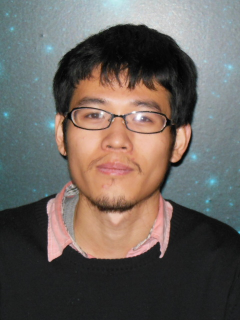4月8日, 周一15:30-17:00
紫金港西区海纳苑8幢324
Elemental abundances of hot plasmas in individual galaxies and galaxy assemblies

Abstract:
Hot plasmas in individual galaxies and galaxy assemblies are enriched with metals because metal lines stand out above the continuum in the observed X-ray spectra. The observed elemental abundances encode the chemical enrichment processes of the hot plasmas. Dying stars (AGB stars, core-collapse, and type Ia supernovae) are the main cosmic metal factories. Various processes (e.g., AGN feedback, ram pressure) can redistribute metals. By accuratly measure elemental abundances, future missions like XRISM, HUBS, and X-IFU will greatly advance our knowledge of the chemical enrichment of the hot Universe. Continuous development of plasma models and the underlying atomic database is also essential to fully exploit the power of the next generation of high-resolution X-ray spectrometers.
Dr. Junjie Mao is currently an Assistant Professor at the Department of Astronomy (DoA), Tsinghua University.
Before joining DoA, he was an Assistant Professor at Hiroshima University in Japan (2021-2022) and a Research Associate at the University of Strathclyde in the UK (2018-2021).
He obtained his Ph.D. degree at Leiden University (Leiden Observatory) and SRON (Netherlands Institute for Space Research) in the Netherlands in 2018.
His research interest revolves around high-resolution spectroscopy of astrophysical plasmas, including ionized winds driven away from supermassive black holes, elemental abundances of the hot plasmas of individual galaxies and galaxy assemblies, development of plasma models and atomic databases.
欢迎老师和同学们参加!



